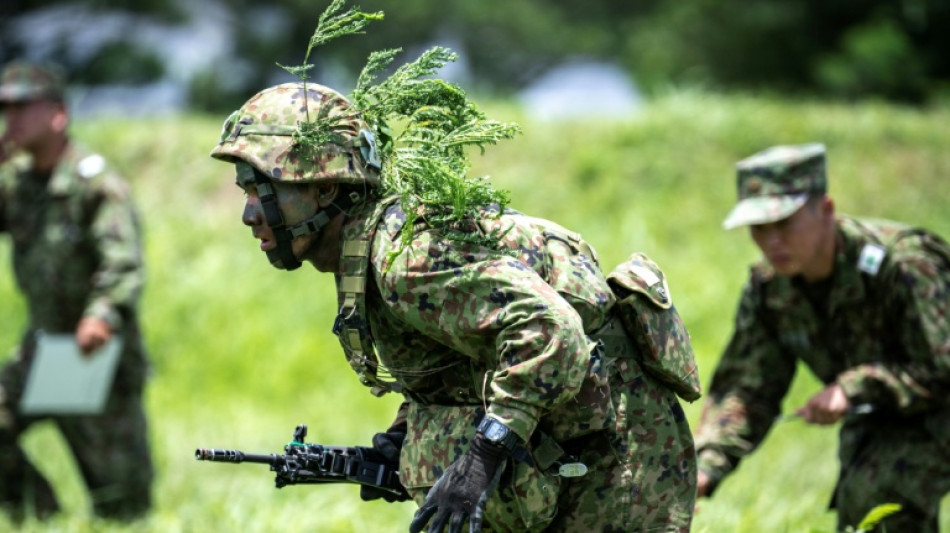
-
 Escape room helps Pegula into US Open last eight
Escape room helps Pegula into US Open last eight
-
Defiant Vlahovic shoots Juventus to victory at Genoa

-
 Directors who quit US health agency warn it is 'destroying' protections
Directors who quit US health agency warn it is 'destroying' protections
-
US would control Gaza, displace all its people under new plan: report

-
 Szoboszlai took risk to shine in Alexander-Arnold's absence
Szoboszlai took risk to shine in Alexander-Arnold's absence
-
Shi downs Kunlavut to win first world title, Yamaguchi takes women's crown

-
 Szoboszlai stunner earns Liverpool win over title rivals Arsenal
Szoboszlai stunner earns Liverpool win over title rivals Arsenal
-
Guirassy brace blasts Dortmund past Union

-
 Szoboszlai gem seals Liverpool win over Arsenal, Man City rocked by Brighton
Szoboszlai gem seals Liverpool win over Arsenal, Man City rocked by Brighton
-
'Weapons' fights back to top of N. American box office

-
 Sutherland stars as Superchargers win Women's Hundred final
Sutherland stars as Superchargers win Women's Hundred final
-
Ekitike wins late France call up as Cherki drops out

-
 Man City blew it in Brighton defeat admits Guardiola
Man City blew it in Brighton defeat admits Guardiola
-
Piastri vows no let up in Formula One title race

-
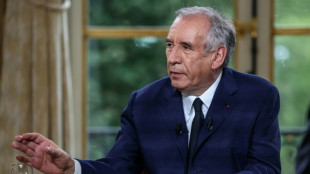 French PM says 'fate of France' at stake in confidence vote
French PM says 'fate of France' at stake in confidence vote
-
Pegula swats Li to reach US Open quarter-finals

-
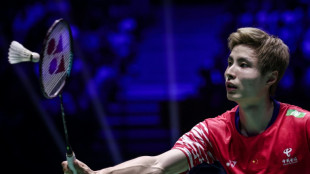 Shi downs Kunlavut to win first badminton world title, Yamaguchi takes women's crown
Shi downs Kunlavut to win first badminton world title, Yamaguchi takes women's crown
-
Piastri rules, double trouble for Ferrari at Dutch Grand Prix

-
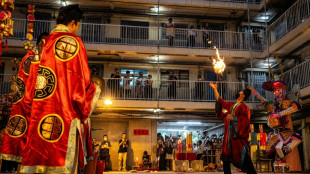 Hong Kong's 'hungry ghosts' tell tale of fading community
Hong Kong's 'hungry ghosts' tell tale of fading community
-
Jude Law became 'obsessive' Putin watcher for role as Russian leader
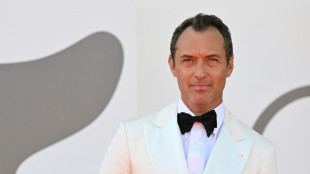
-
 New documentary casts Marianne Faithfull in new light
New documentary casts Marianne Faithfull in new light
-
Champions New Zealand see off Japan to reach Women's Rugby World Cup last eight

-
 Vingegaard makes move as he powers to Vuelta stage nine win
Vingegaard makes move as he powers to Vuelta stage nine win
-
From music to marijuana, US Open 'circus' challenges players

-
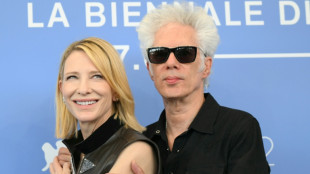 Director Jarmusch 'disconcerted' over Mubi's links to Israel military
Director Jarmusch 'disconcerted' over Mubi's links to Israel military
-
Piastri extends championship lead after Norris breakdown at Dutch Grand Prix

-
 Man City rocked by Brighton as West Ham ease pressure on Potter
Man City rocked by Brighton as West Ham ease pressure on Potter
-
Piastri extends championship lead with victory at Dutch Grand Prix

-
 Israel says killed spokesman for Hamas armed wing
Israel says killed spokesman for Hamas armed wing
-
Aid flotilla with Greta Thunberg sets sail for Gaza

-
 Ireland on verge of Women's Rugby World Cup quarter-finals after seeing off stubborn Spain
Ireland on verge of Women's Rugby World Cup quarter-finals after seeing off stubborn Spain
-
Indonesia cuts lawmaker perks as president tries to quell protests
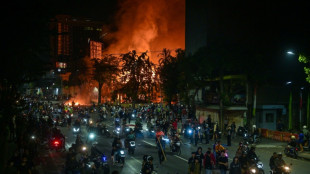
-
 Vardy set to complete move to Serie A side Cremonese: source
Vardy set to complete move to Serie A side Cremonese: source
-
Japan's Yamaguchi cruises to third badminton world title
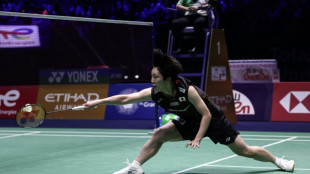
-
 Jackson hopes to revive Bayern move after Chelsea halt loan deal
Jackson hopes to revive Bayern move after Chelsea halt loan deal
-
Floods leave women struggling in Pakistan's relief camps
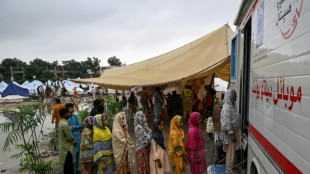
-
 Augsburg's Fellhauer leaves hospital after concussion against Bayern
Augsburg's Fellhauer leaves hospital after concussion against Bayern
-
Man Utd stars back Amorim says De Ligt

-
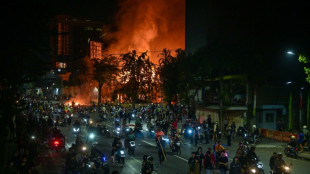 Indonesia leader says some protests 'leaning towards treason, terrorism'
Indonesia leader says some protests 'leaning towards treason, terrorism'
-
Springboks call up De Klerk for New Zealand tour

-
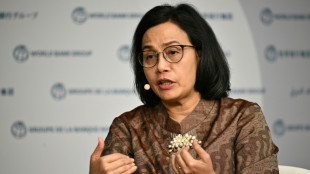 Indonesian finance minister's home looted as protest anger grows
Indonesian finance minister's home looted as protest anger grows
-
Indonesia protests put spotlight on paramilitary police force
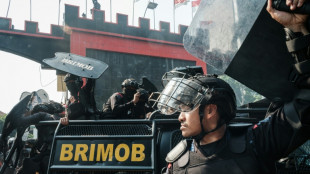
-
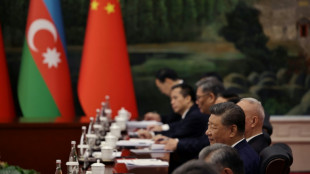 Putin and Modi in China for summit hosted by Xi
Putin and Modi in China for summit hosted by Xi
-
Britain's energy grid bets on flywheels to keep the lights on

-
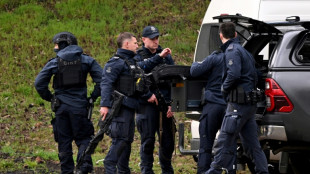 Wife of Australian man wanted in police killings urges him to surrender
Wife of Australian man wanted in police killings urges him to surrender
-
Indonesian islanders taking Swiss concrete giant to court over climate

-
 Zverev knocked out in US Open third round
Zverev knocked out in US Open third round
-
Aid flotilla with Greta Thunberg set to sail for Gaza

-
 French foreign minister expresses 'solidarity' on Greenland trip
French foreign minister expresses 'solidarity' on Greenland trip
-
Tourists dice with danger on Hanoi's train street
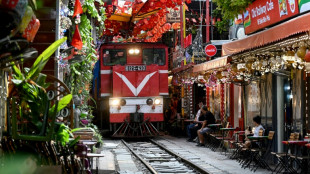

Pacifist Japan struggles to boost troops as China anxiety grows
Sporting dark face paint and clutching a gun, teenage soldier-in-training Takuma Hiyane crawls across a field on Japan's Okinawa, the front line of the nation's defence as anxiety grows over China's territorial ambitions.
As the world marks the 80th anniversary of World War II, Japan -- which has been officially pacifist since its defeat -- is trying to lure more talent into its armed forces.
Tokyo began upping its military spending in 2023 and aims to make it two percent of its gross domestic product by the end of the 2027 fiscal year, but has come under pressure from Washington to boost it even further.
Japan fears that China could attempt a forceful takeover of Taiwan -- the self-governed island it claims -- potentially triggering a conflict with Washington that could drag in Tokyo as well.
But it has been hard to convince enough young Japanese to enlist.
Hiyane, a 19-year-old former high school badminton player who signed up after his graduation in March, was swayed by the idea of helping victims of natural disasters, he said.
"I thought this was a job that I could contribute to my country and be proud of, so I decided to join," he told AFP, carefully dodging questions on the sensitive topic of national defence.
Tokyo wants a beefed-up military in southwestern regions such as Okinawa, home to some 70 percent of US military facilities in Japan and seen as strategically important for monitoring China, the Taiwan Strait and the Korean peninsula.
In 2023, the Japan Self-Defense Forces (SDF) aimed to hire almost 20,000 people, but recruited just half that number, according to the defence ministry.
Dangerous duties, low pay and a young retirement age of around 56 are off-putting for young Japanese, officials and experts say.
Japan's low birth rate, shrinking population and tight labour market are also complicating recruitment, leaving around 10 percent of the force's 250,000 positions unfilled.
- Better conditions -
On Okinawa, Hiyane and his fellow trainees braved scorching heat to stage a line formation, before dashing forward to capture a mock enemy fort.
"I find training here very physical and hard, but I am used to it in a way since I played sports at school," he said.
"I find it more exhausting and nerve-racking when I have to shoot guns."
Prime Minister Shigeru Ishiba said in June that increasing SDF numbers was "a top priority" given Japan's worsening security environment.
Kazuyuki Shioiri, who helps manage an infantry regiment in Okinawa where Hiyane trains, said increased defence expenditure was gradually making troops' lives better through various upgrades including air conditioning, cleaner bathrooms and more privacy in dormitories.
"We have been able to improve conditions," he said.
Before the extra funds, Japanese troops had complained that they lacked bullets and basic supplies.
They used to strip old tanks and jets for parts to repair newer equipment, the defence ministry said.
But it's not simply "muscular troops with high combat capabilities" that the force wants, said Toshiyuki Asou, an SDF recruiter on Okinawa.
"We are looking for a wide range of personnel now as national security involves everything from cybersecurity, space defence, electromagnetic warfare, and of course intelligence work," he added.
- Reluctant to fight -
Despite the government's defence push, Japanese citizens have traditionally kept their distance from the subject, with some still carrying bitter memories of the nation's militarist past.
Japan's constitution, which was drafted by the US after World War II and enjoys wide public support, bans Tokyo from using force and does not recognise the SDF as a formal military.
While the troops are highly respected, the public have loudly opposed any attempt to amend the constitution to grant them that status.
In a Gallup International survey released last year, only nine percent of Japanese respondents said they would fight for the country if there was a war, while 50 percent said they would not.
That compares with greater willingness in some other countries, with 46 percent of South Koreans, 41 percent of Americans and 34 percent of Canadians saying they would fight.
Ryoichi Oriki, the former head of the Joint Staff of the SDF, said during a recent press briefing that he wished for "greater understanding among the public about the reality of national defence".
In the field, new recruits said they were excited about launching their military careers despite the geopolitical turbulence.
"I have learned the spirit and skills of Self-Defense Force personnel," said Hiyane, who is about to complete his initial training. "I feel I have grown."
A.Malone--AMWN
